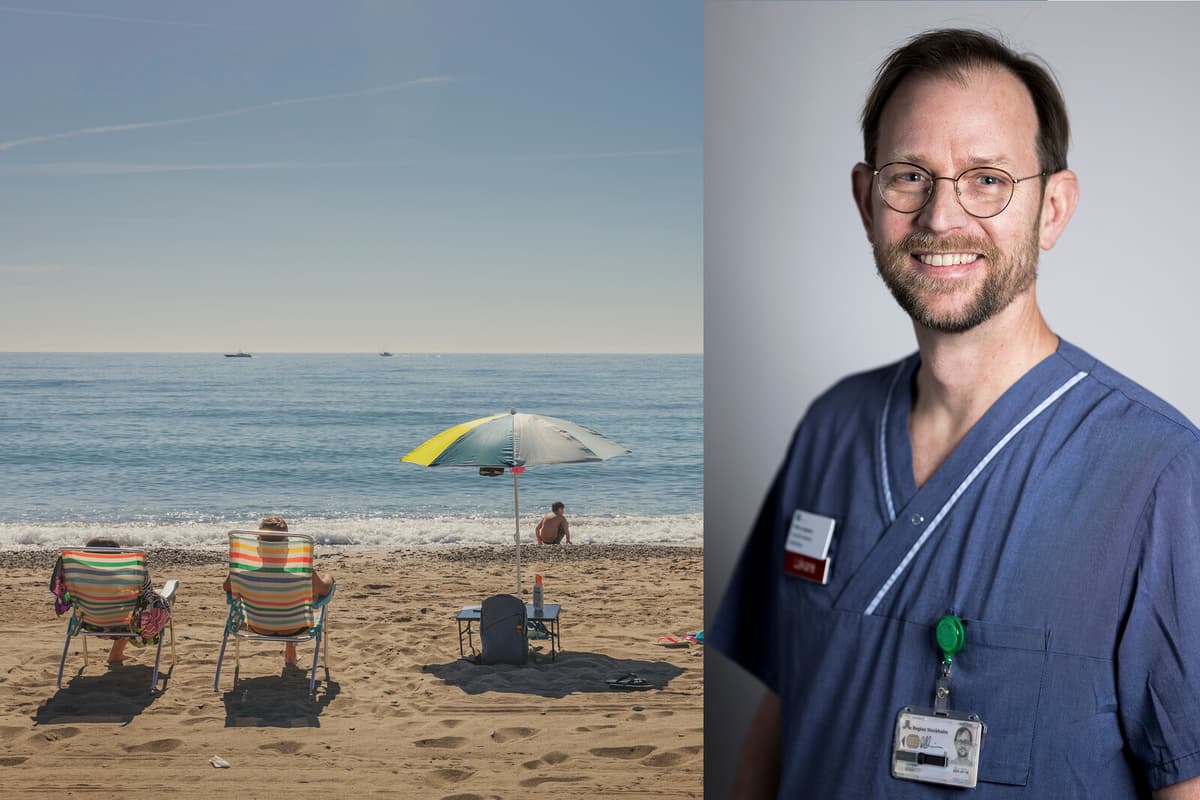Think about that everyone can be affected
Although heat waves hit hardest on risk groups such as the elderly and people who already have some kind of heart or lung disease, they also pose risks to young, healthy and children. The body tries to maintain its normal body temperature regardless of how hot it is outside and transports blood from the internal organs to the skin surface to cool down.
To pump away the blood, the heart must beat harder, it can be like a stress for the heart and cause rhythm disturbances and circulatory collapse even for young and healthy, says Petter Ljungman, chief physician in cardiology at Danderyd Hospital and Karolinska Institute.
Warning signs for children can be that they can become lethargic and vomit.
Use air conditioning
Use air conditioning if available. Put wet rags and towels on the skin in the armpits and groin where you have large pulse veins. Then the body cools down faster.
Be aware of humidity
The pain threshold for the risk of heat stroke goes in degrees cannot be said, it's not always the temperature that decides, but also humidity, activity and clothing.
If the air is humid, it's tougher - then you can't sweat as much because the air is already saturated with fluid and can't absorb more water from the body, says Petter Ljungman.
Be active in the evening or early morning
Swedes are often not as accustomed to handling extreme heat as the local population. Instead, sun-thirsty Swedes easily seek out the scorching sun in the middle of the day, just when they should stay away. Stay away from the sun in the middle of the day, seek shade then. Do physical activities late in the evening or early in the morning.
Road workers who work with asphalt during intense heat risk collapsing from heat stroke, says Petter Ljungman, who gives the advice to slow down the pace the warmer it is.
Drink properly - not just water
Elderly people do not feel thirst as easily, so make sure to refill water frequently for both children and the elderly.
Make sure to refill with fluid and salt because you lose salt when you sweat. Also, be aware of warning signs in both children and the elderly of symptoms of heat stroke, such as nausea and headache. And make sure they get water before they become too thirsty, says Petter Ljungman.
Correction: In an earlier version, the calculated temperature was incorrectly stated.






